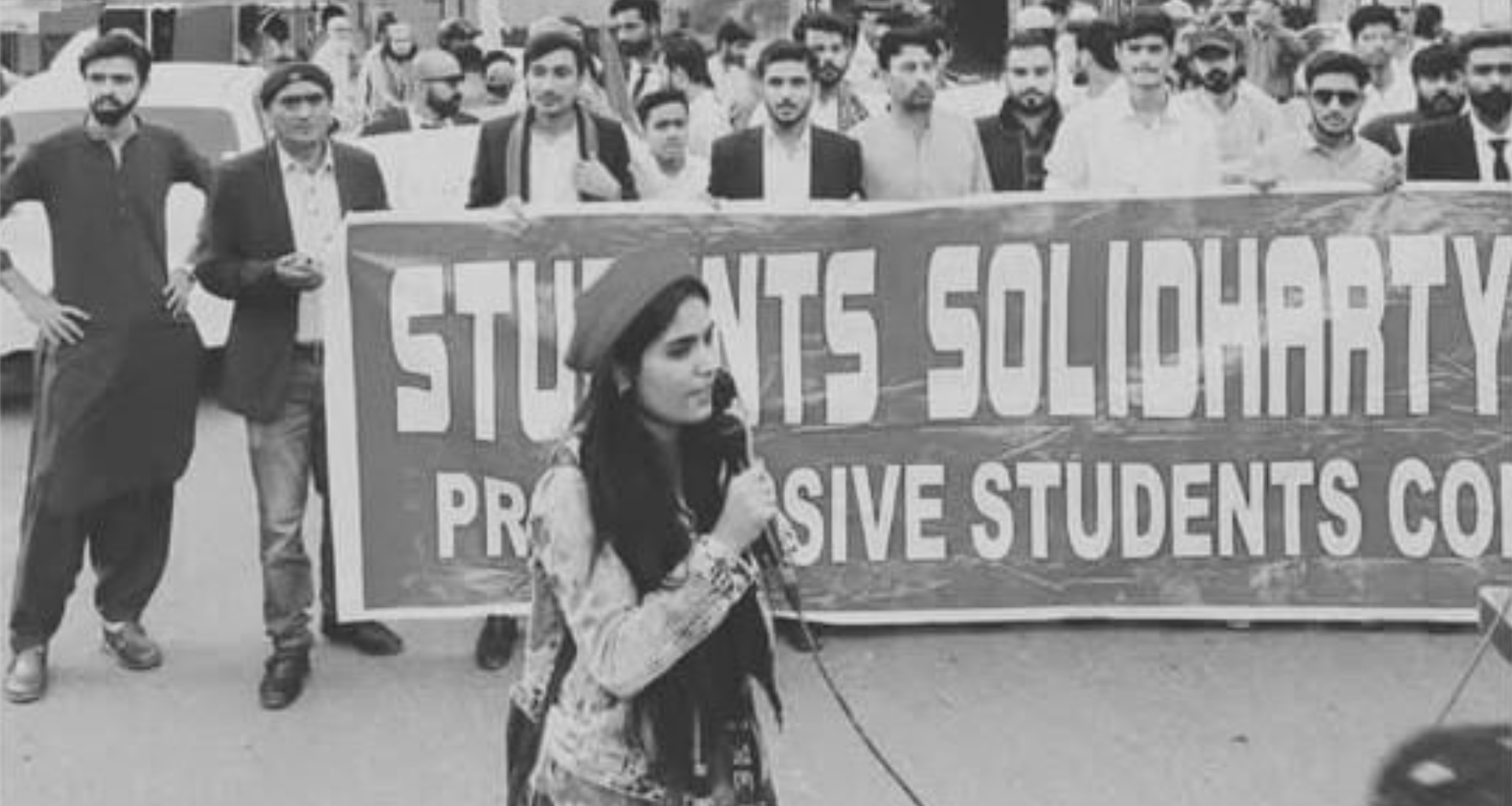By Virsa Zulf
I still remember the first time I stood on a stage, microphone in hand, my voice trembling as I spoke about the injustices faced by women in my community. It was a far cry from the silent, reserved student I once was. Today, as a political worker and advocate for women’s rights, missing persons, and student empowerment, I use my voice to fight for change.
But finding my voice wasn’t easy. Growing up, I was a quiet observer, unsure of where I belonged. It was only when I stepped into student politics that I realized the power of speaking up. With each protest, each speech, and each challenge, I grew stronger, determined to stand for those who couldn’t.
Early Life and Influences
Born into a working-class family, I grew up witnessing the struggles of marginalized communities. My father, a dedicated political worker, instilled in me a strong sense of justice. During the oppressive era of General Zia-ul-Haq, he was imprisoned for standing up for the working class. He was associated with the Democratic Students Federation, and it was through him that I was introduced to student politics when I enrolled at university.
While many families discouraged political involvement, mine was different. A few days after starting at Federal Urdu University, Abdul Haq Campus, I met progressive students and joined their group. When I shared this with my father, he wholeheartedly supported me. He introduced me to his friend Niranjan Kumar, also a member of the Democratic Students Federation, who encouraged me to read extensively—both fiction and non-fiction. At just 17, my perspective on social and political issues transformed.
My journey in activism began with the Progressive Students Collective, where I actively campaigned for student rights. Contesting elections, I was elected Secretary General and later became the Central President. These years shaped me, connecting me with like-minded individuals and teaching me the power of collective action.
However, life took a difficult turn. To support myself and my family, I joined the workforce, limiting my time for politics. After graduation, the weight of practical responsibilities grew heavier, and during this challenging period, I lost my greatest supporter—my father. Struggling to find balance, I eventually resigned from my position as Central President.
Though my activism slowed, it never stopped. I later joined the Workers Resistance Movement, reigniting my fight for women’s rights from the ground up.
Stepping into Activism
Protests and rallies initially felt overwhelming, but with time, I grew more confident. Having my father’s support was invaluable—it gave me the courage to defy societal norms. As a woman in a male-dominated society, I faced resistance and judgment, but I refused to be silenced. With every march, I became stronger, transforming my anger and frustration into powerful speeches demanding justice.
The challenges were constant. Society scrutinized my presence in political spaces, questioning my choices. However, I found strength in the incredible women around me—comrades who stood by me through it all. Their unwavering support kept me going.
Challenges and Resilience
One of the most defining moments of my journey was being targeted for speaking out against state policies. In 2022, during the devastating floods in Sindh, I protested against universities demanding semester fees from students whose homes had been destroyed. As a result, an FIR was filed against me.
When I informed my father, he asked for a copy of the FIR, reassuring me that everything would be fine. In the court, instead of addressing the case, the judge told me to cover my head. I firmly responded, “Why? It’s my choice not to.” My comrades stood beside me, offering their unwavering support.
In Pakistan, political workers are often targeted, but that only strengthened my resolve. The fear of persecution did not silence me—it fueled my determination to fight for the release of missing persons and the restoration of student unions. Facing fake cases and oppression has become a norm, yet I remain steadfast in my commitment to reintroducing workers’ politics among the people.
Personal Growth and Achievements
Today, as a student of Mass Communication, I use my education to amplify the voices of the marginalized. As a Complaint Officer at the Sindh Commission on the Status of Women, I work to address grievances and protect women’s rights. Every step of this journey has shaped me—from a silent observer to a confident leader.
But my fight is far from over. Every day, I wake up with the same fire in my heart—to fight for justice, equality, and the rights of every individual. I dream of a Sindh where women are empowered, students are heard, and no one is silenced by fear. This is not just my achievement—it is my responsibility. And I will continue to stand tall, no matter the challenges ahead.
